Black Americans experience almost universally worse outcomes when it comes to healthcare and a recent discussion hosted by Providence Saint John’s Health Center focused on how to address racial disparities.
Childhood issues start with higher rates of infant / maternal mortality, asthma and mental health challenges. As adults, illnesses such as high blood pressure and Alzheimer’s disease are more common.
Various factors contribute to these disparities, including underlying health conditions, but many experts highlight the impact of structural racism leading to inequitable healthcare access, implicit bias, and discriminatory care.
Limited access to quality medical care is identified as a major contributor to poorer health outcomes, along with environmental problems in Black communities and lower priority given to the well-being of Black individuals by healthcare institutions. Recent estimates project a decline in life expectancy for non-Hispanic Black Americans, widening the gap with their White counterparts.
Providence Saint John’s Health Center held a "Racial Disparities in Healthcare" symposium on February 7.
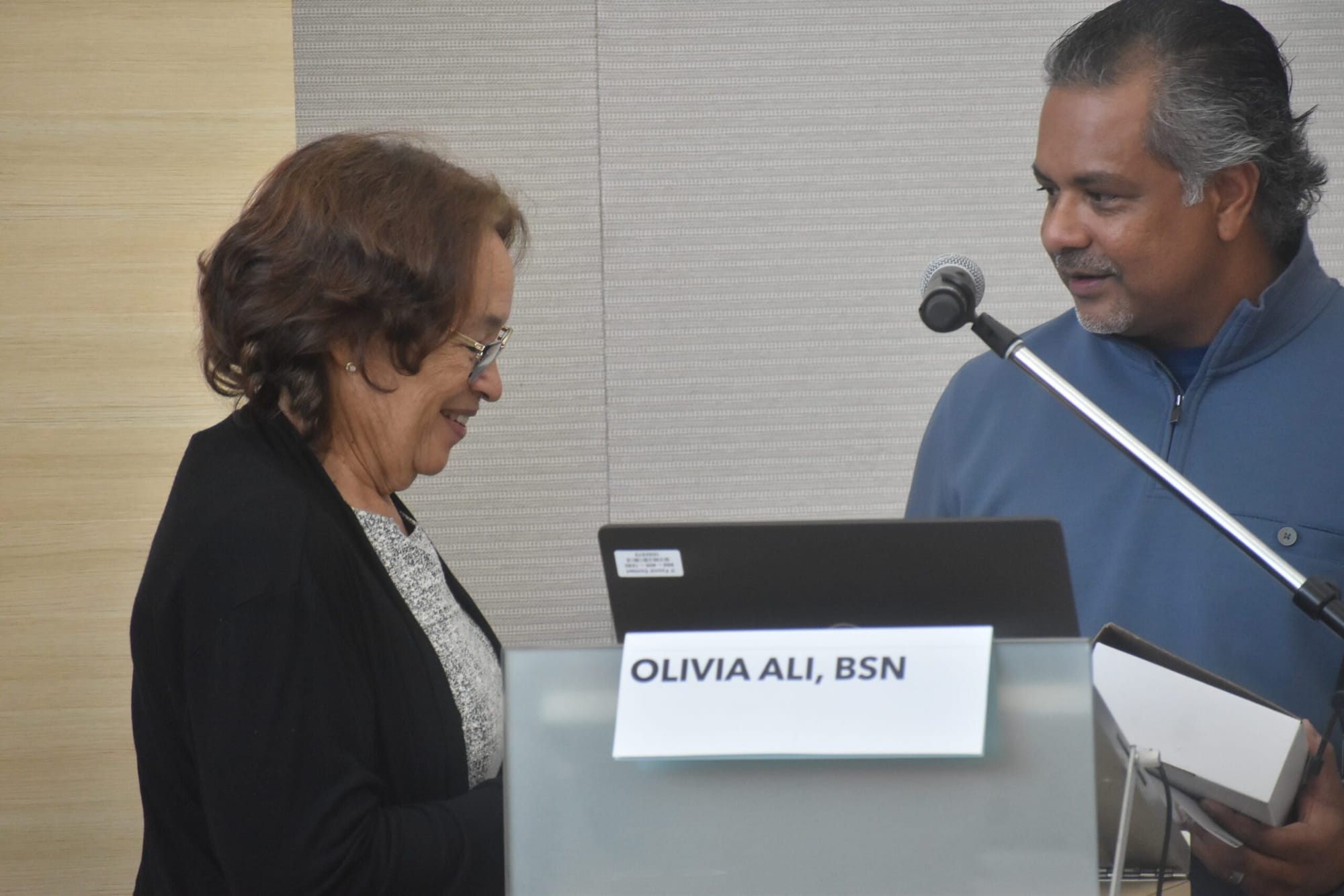
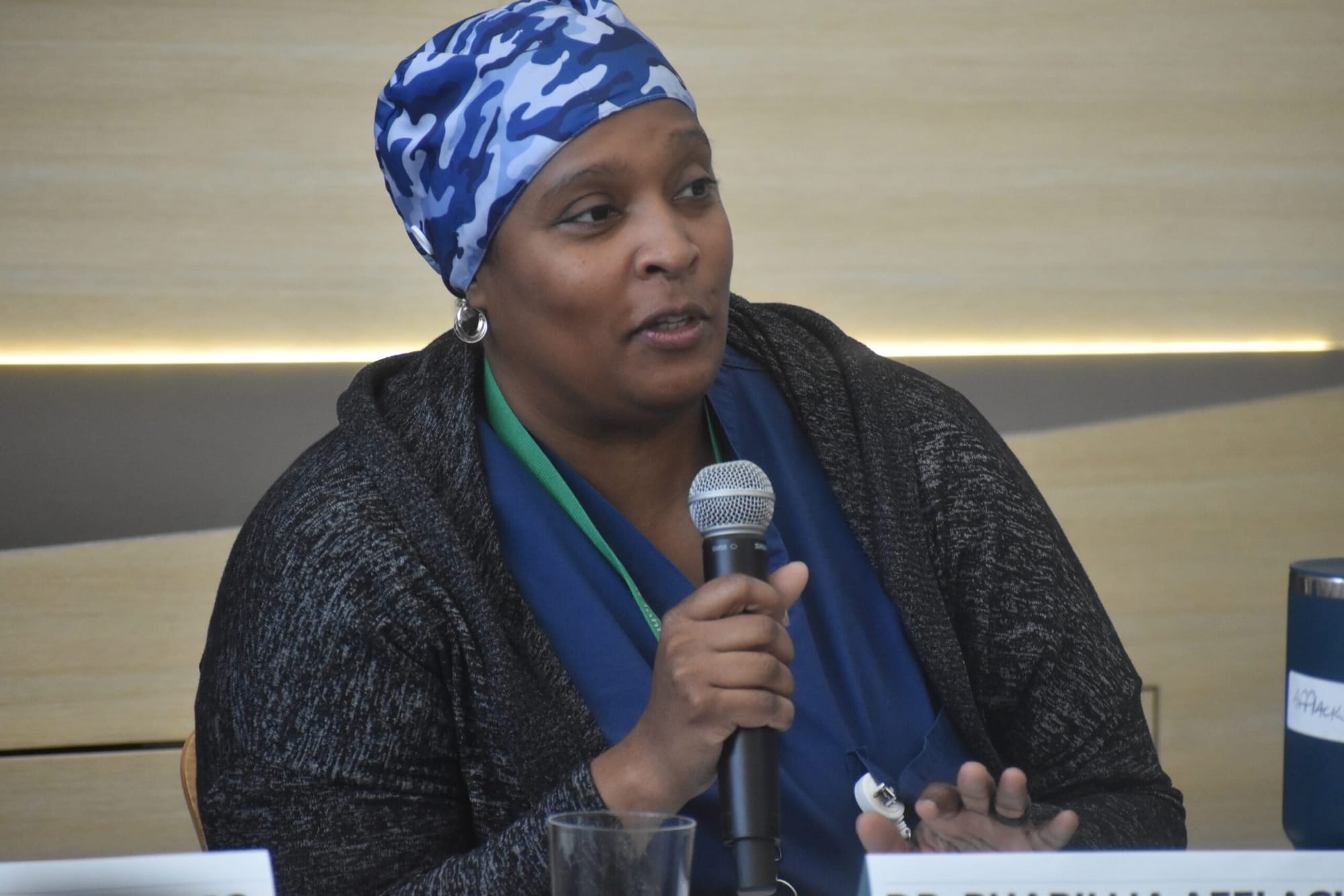
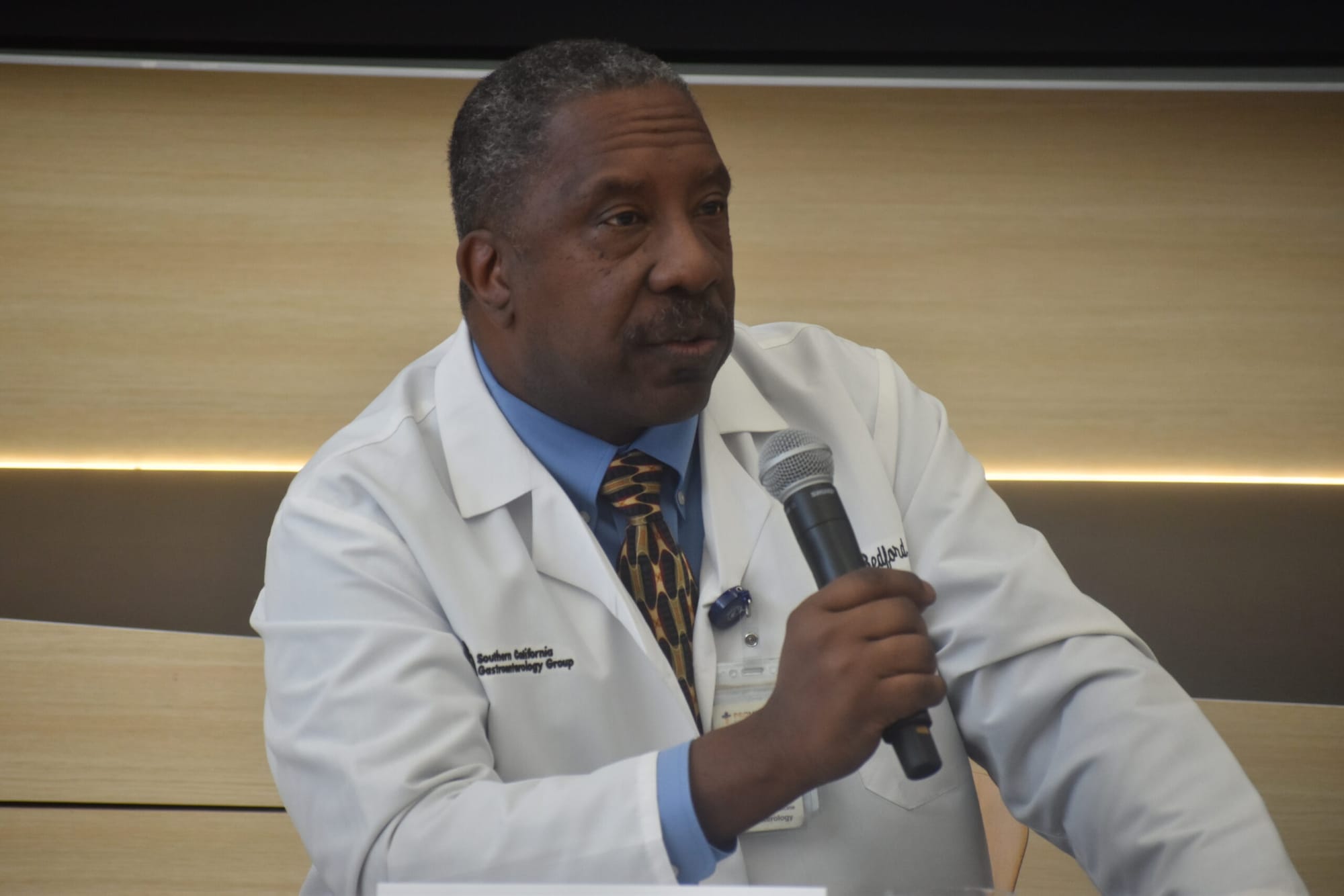
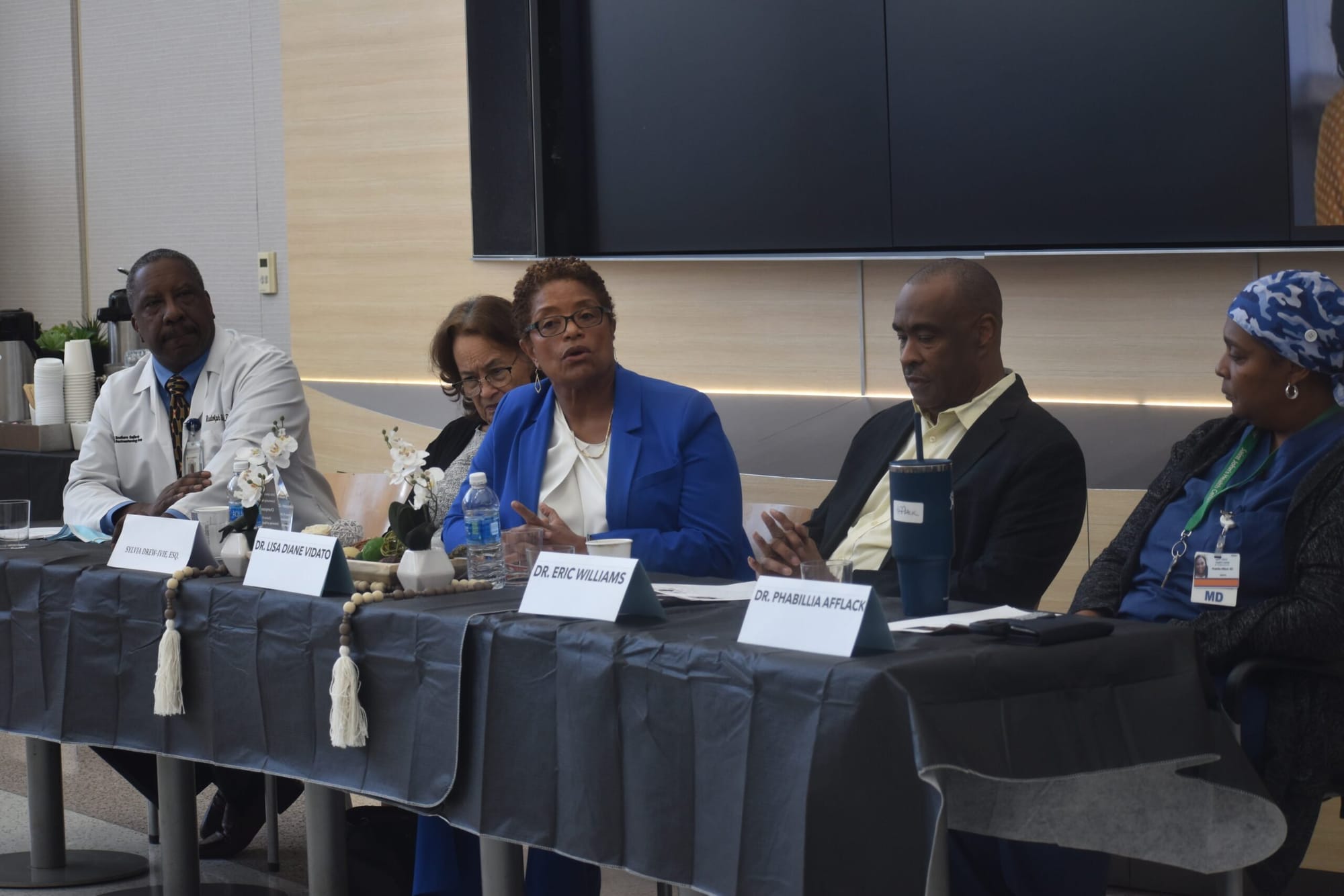
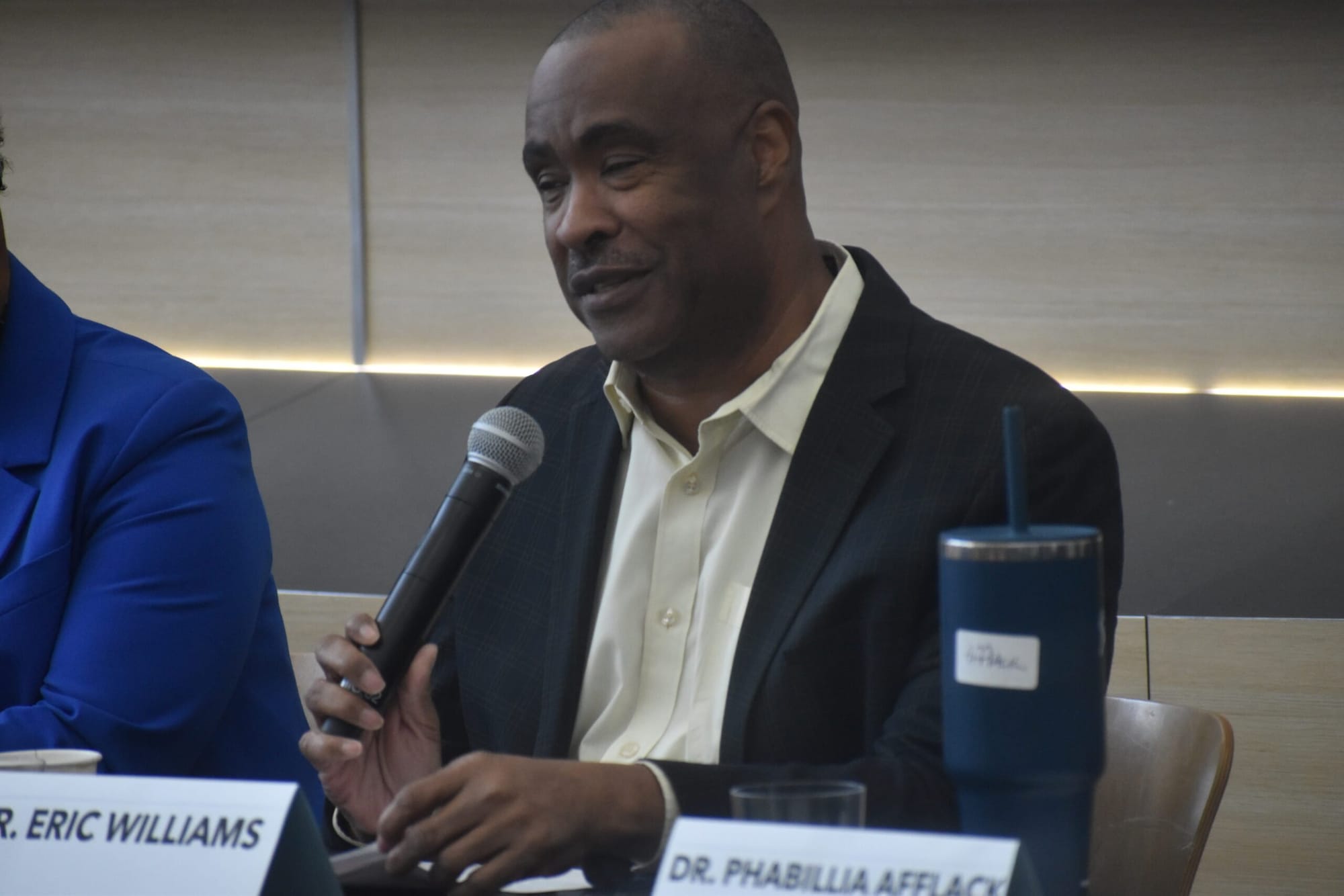
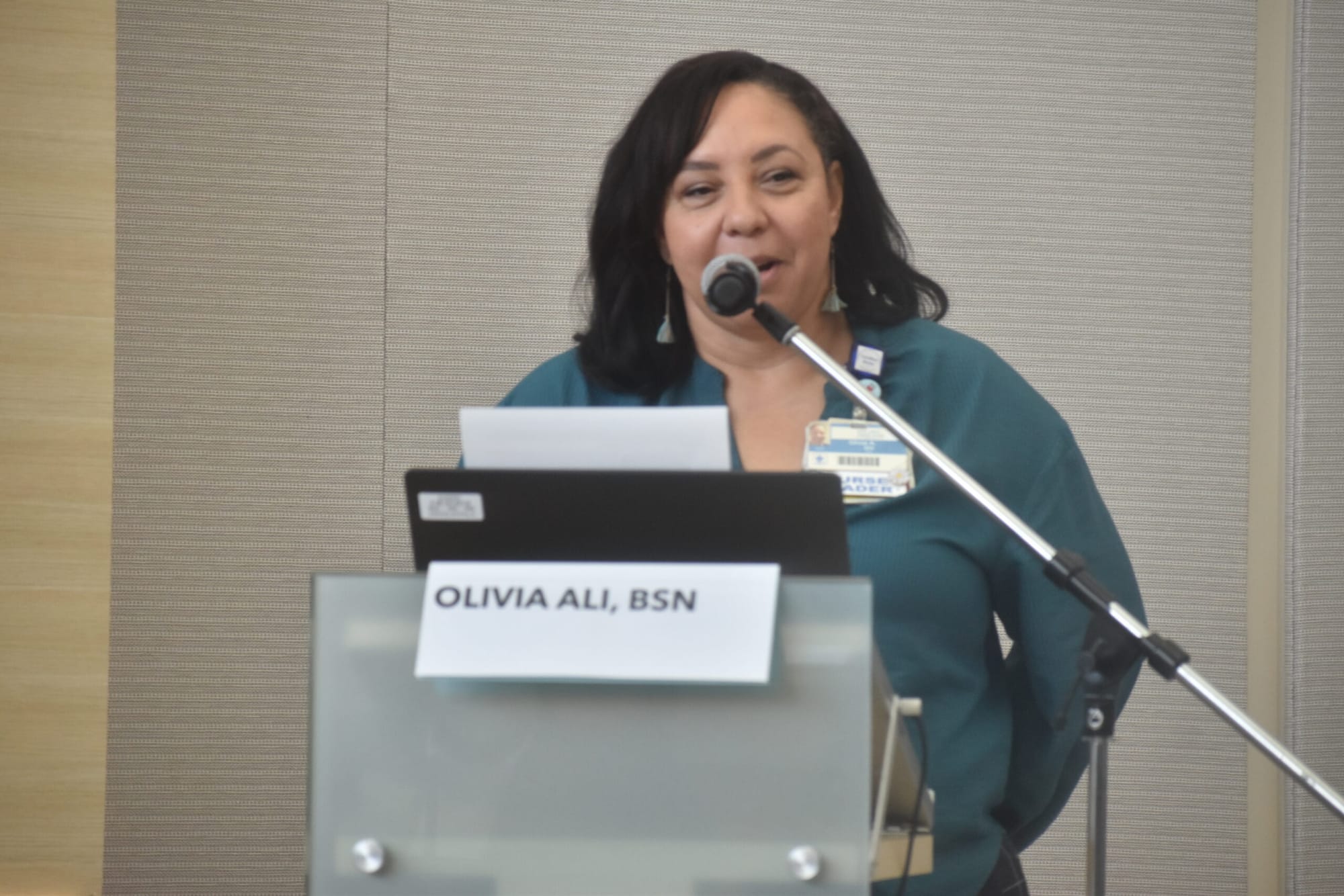
The panel discussed specific problems, such as higher rates of Black infertility and cervical cancer compared to white counterparts. Dr. Phabillia Afflack, Obstetrics and Gynecology, said ensuring culturally competent care starts with acknowledging differences between communities and turning the conversation away from professionals that say they "don’t see color."
Many of the panelists pointed to improved education on healthcare matters as a way to decrease racial disparity, including Gastroenterologist Dr. Rudolph Bedford, who said "it’s all about education" in fighting the challenges Black patients may have for coming in for his services like colorectal screenings. Dr. Eric Williams, Interim Associate Dean of Health Sciences and Nursing Program Director at Santa Monica College (SMC), also stressed the importance of SMC as a local knowledge source for young Black professionals.
Along with the panel, Sylvia Drew Ivie, JD, received the Community Health Equity Champion award from the center
Ivie received the award for her work as a Black mental health advocate, lawyer and activist. Ivie has held many positions throughout her distinguished career, such as serving as former Senior Deputy for Human Services for the 2nd District of the LA County Board of Supervisors, as well as being the former Chief Executive Director of primary health care clinic T.H.E. (To Help Everyone). She has taken other honors in the past such as the 1993 United Way’s Agency Excellence Award for the Most Innovative Approach to Service Delivery, as well as the 1994 Henry J. Kaiser Family Foundation’s Nelson Mandela Award for Health and Human Rights.
Ivie spoke about the importance of Charles Drew University of Medicine and Science, named in honor of her father, Charles R. Drew. Drew developed large-scale blood banks during World War II, giving medics the chance to save thousands of Allied lives.

